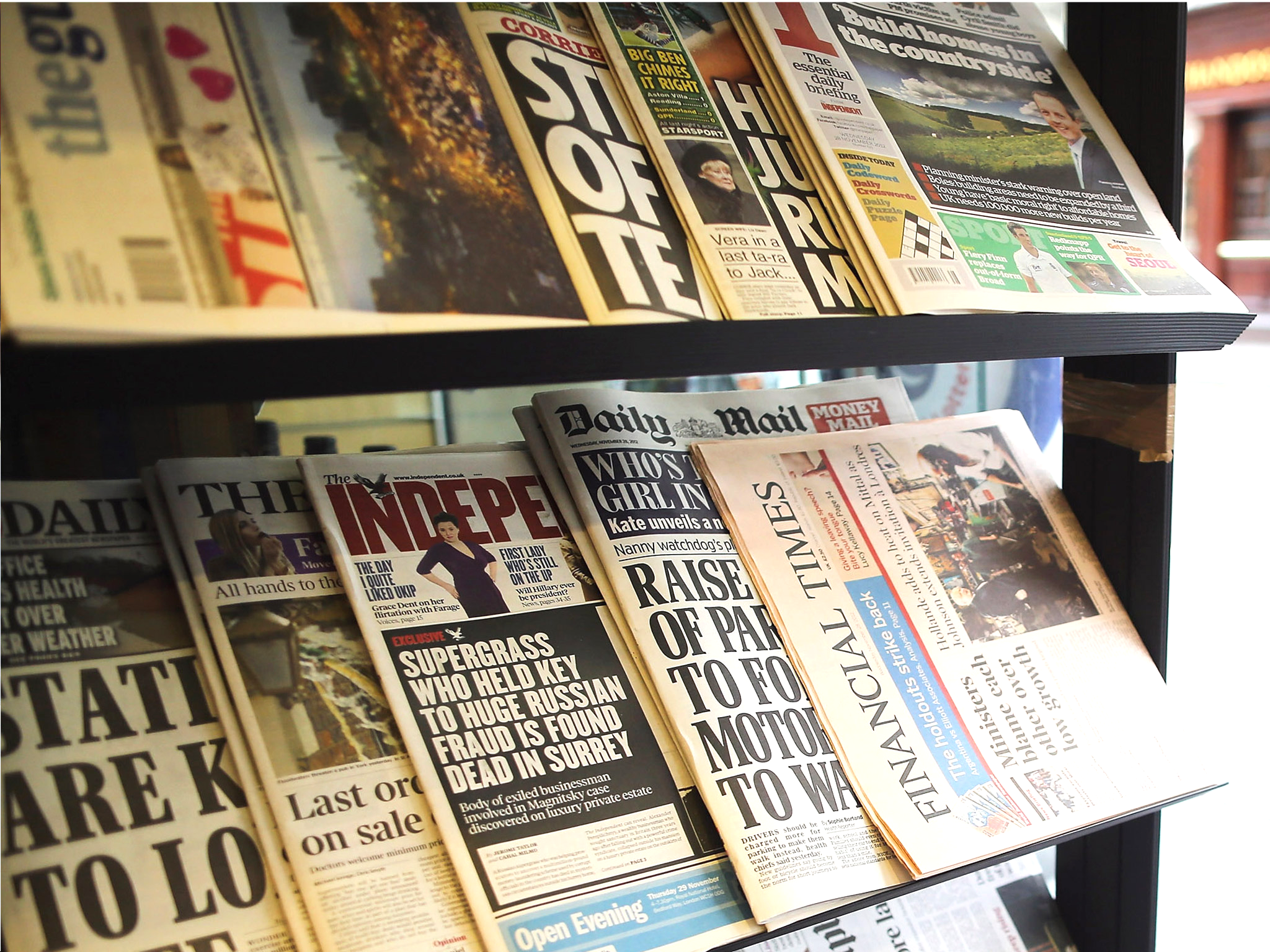Historic Royal Charter on press regulation close to being agreed
The Bill should be able to proceed after an earlier threat to hijack it with a media amendment

The three leading political parties were last night close to signing up to a historic Royal Charter to implement the recommendations of Lord Justice Leveson on reforming regulation of the press.
It is expected that the Royal Charter will be supported by statutory underpinning, with a clause inserted into existing government legislation in order to prevent future changes to the document without the authority of a substantial majority in Parliament.
Since publication of the Leveson report in November, the Labour Party has insisted that some element of statute was essential to strengthen the body that will oversee the new regulator.
David Cameron has declared that any form of press legislation would be the crossing of the Rubicon in Britain’s centuries-old traditions of a free press. But the Conservatives are understood to have come round to the idea of a single clause of statutory underpinning for the regulator’s recognition body, something which was proposed this week by the editors of the Financial Times, The Independent and The Guardian.
One government source said that the statutory clause only repeated a stipulation already set out in the Royal Charter itself. “If the Labour Party felt it was absolutely necessary to have that written into a piece of existing govern-ment legislation, then we are not going to die in a ditch with it,” said the source. “It’s still a Royal Charter without statute.”
Freedom of Speech campaigners will be concerned at the presence of statute but also relieved that the Defamation Bill, which had been hijacked by a Leveson-inspired amendment introduced by Lord Puttnam to put pressure on the Government, is now likely to proceed through Parliament without that amendment.
The Royal Charter document was being finalised last night in talks at the Cabinet Office between the Policy minister Oliver Letwin, the Culture Secretary Maria Miller, the shadow Culture Secretary Harriet Harman and the Liberal Democrat peer Lord Wallace of Tankerness. The talks were ahead of a meeting due to take place between the leaders of the three main parties to ratify the charter.
The press reform campaign group Hacked Off, which represents many of the victims of phone hacking and has been seeking the full implementation of the Leveson proposals including statue, met the Deputy Prime Minister Nick Clegg and the Labour leader Ed Miliband today. A spokesman said they expected further discussions this week before any deal was finalised. The newspaper industry still has concerns over the potential impact of a new regulator. In particular, the financially challenged regional press is worried that the system will offer a free new arbitration service that could encourage complainants and their lawyers to seek financial recompense for minor issues where previously they would have wanted only a correction.
The new press regulator will be overseen by a recognition panel – with no newspaper industry members – that will monitor its work. The membership of that panel is likely to comprise the unanimous choices of a separate appointments panel, which itself would be likely to have four members, none of whom would be editors or publishers.
Join our commenting forum
Join thought-provoking conversations, follow other Independent readers and see their replies
Comments
Bookmark popover
Removed from bookmarks